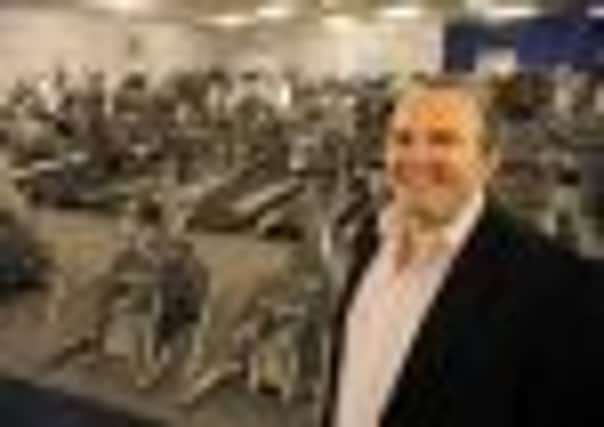The Aldi of the fitness sector is leading a gym club revolution


Jon Wright has seen his affordable gym operator Xercise4less expand quickly as people realise it is not necessary to spend £40 or £50 a month to say fit.
The firm has 10,000 members at its Wakefield and Castleford sites and will turn over £2.5m for the year to July, although it wants to increase this tenfold by 2015 as business models change, Mr Wright said.
Advertisement
Hide AdAdvertisement
Hide Ad“Typically 15 per cent of adults use health clubs but that is moving towards 20 per cent. It is opening up our market.”
The growth of Xercise has been based on a low subscription rate, of £14.99 a month, flexibility, with members on monthly, discounted 12 month rates or ongoing contracts, rather than the rigid long-term agreements with high penalty clauses used by some operators, and a focus on costs which means several instructors are self-employed personal trainers rather than on the firm’s payroll.
“The key for us is to be flexible and to meet the members’ requirements,” said Mr Wright, a former Leeds rugby union player.
“We let you freeze fees if you get injured or go on holiday. It is just so much cheaper to run – (changing and freezing memberships) was a longer process but now it is done at the click of a button.”
Advertisement
Hide AdAdvertisement
Hide AdThis model, of lower costs and lower fees, is why Mr Wright describes his firm as the Aldi of the fitness sector, in honour of the German supermarket.
Last month Xercise reached another significant landmark when it appointed business angel Neil Ewin as a non-executive director.
For the firm to keep growing in the long-term, however, it may need a capital injection. The credit crisis which has driven customers to Xercise also means it remains difficult for small businesses to get a loan and owner Mr Wright said it was this, as well as the challenge of finding suitable sites, that could limit its growth.
So would he be willing to sell a stake in the business? “It is a possibility. The way that banks are is that they are not falling over themselves to lend you money. That is just the nature of the climate we are in.
Advertisement
Hide AdAdvertisement
Hide Ad“If the banks are not willing to do it your only alternative is to go to private equity. Clearly, we want to get to a lot bigger before that.”
In the meantime, Xercise, which is profitable, will open a new site in a 32,000 sq ft former retail warehouse in Stockton in September, creating 40 jobs. It also plans to extend its Wakefield site, a former Allied Carpets store, by adding a 2,000 sq ft ladies only extension, although Mr Wright said the firm will not be opening a full size single sex gym.
Instead it will continue to drive up its customer base and find new sites. It wants to have 15 gyms and 150,000 members by 2015 which Mr Wright is confident he can achieve, based on a low rate of churn (the number of members leaving and joining).
Mr Ewin will play a key part in this after joining last month. The SME investor and consultant, from Leeds, is an experienced business angel who sold his legal software group, Visualfiles, to a US company for a multi-million pound sum in 2006.
Advertisement
Hide AdAdvertisement
Hide Ad“It is an advantage to bring somebody on board of that calibre,” Mr Wright said.
“He comes in with that level of insight – (helping improve) customer services ideas and repeat business. The health club industry is a very sales driven industry.”
Mr Ewin will bring the experience of running a business to Xercise, which has been built on Mr Wright’s knowledge of the gym industry. He has been involved with health clubs for 18 years after injury forced him to stop playing rugby union.
He played for Headingley in the early 1990s and in the first year after its merger with Roundhay, when the new club was known as Leeds Tykes (now Leeds Carnegie). He went on to play for Harlequins, before injury cut short his career aged 23.